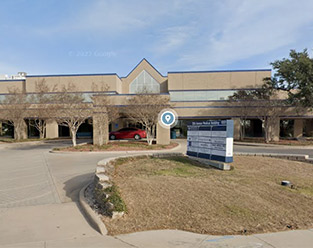 Whiplash is one of the most common injuries following rear-end car accidents, often leaving people with lingering pain and stiffness in the neck.
Whiplash is one of the most common injuries following rear-end car accidents, often leaving people with lingering pain and stiffness in the neck.
But to truly understand this condition, it’s important to look at what actually happens inside the body when whiplash occurs—the sudden forces that strain muscles, ligaments, discs, and joints of the cervical spine.
Let’s break down the biomechanics of whiplash, explore how it impacts the neck and spine, review common symptoms, discuss long-term risks, and outline effective treatment options.
What Happens to the Neck During Whiplash
Cervical Spine Motion
Often, during a collision, the head and neck snap backward and forward, forcing the cervical vertebrae to move beyond their normal range. This sudden motion causes abnormal stress on the spine.
Soft Tissue Damage
As a result of whiplash, the muscles, tendons, and ligaments that stabilize the neck can be overstretched or torn, leading to soft tissue damage, inflammation, pain, and reduced mobility—hallmark whiplash symptoms.
Disc and Joint Stress
The intervertebral discs and facet joints absorb much of the impact. This can result in disc bulging or herniation, as well as irritation of the joints, contributing to chronic cervical injury.
Nervous System Involvement
Whiplash may also affect the nervous system. Nerve compression or irritation can trigger headaches, dizziness, tingling, or numbness in the arms, further complicating recovery from neck trauma.
Common Symptoms of Whiplash
Whiplash symptoms can vary in severity, often appearing within 24 hours of an accident but sometimes developing more gradually. Key signs to watch for include:
- Neck pain and stiffness that limit normal movement
- Headaches beginning at the base of the skull, often radiating upward
- Shoulder or upper back pain caused by soft tissue strain
- Tingling or numbness in the arms, suggesting possible nerve involvement
- Dizziness or fatigue, which may signal nervous system irritation
Long-Term Risks if Untreated
Failing to address whiplash promptly can lead to ongoing complications that affect daily life and overall health. Potential long-term whiplash effects include:
- Chronic neck pain and stiffness that persist long after the initial injury
- Reduced mobility and function, limiting work and everyday activities
- Increased risk of degenerative disc disease, accelerating spinal wear and tear
- Post-concussion symptoms, such as headaches, difficulty concentrating, or cognitive changes
Diagnosis and Evaluation of Whiplash
Accurate whiplash diagnosis begins with a thorough clinical examination. Physicians assess range of motion, muscle strength, reflexes, and areas of tenderness in the neck and upper back to identify signs of cervical strain.
When symptoms suggest deeper injury, imaging such as X-rays, MRI, or CT scans may be used to detect soft tissue damage, disc herniation, or joint involvement.
Early and precise cervical spine evaluation is essential, as it not only confirms the extent of injury but also guides appropriate treatment. Prompt imaging for whiplash ensures that serious complications are identified before they become long-term problems.
Treatment and Rehabilitation Options for Whiplash
- Pain management — non-opioid medications, targeted injections, and heat/ice therapy for inflammation and discomfort
- Physical therapy — guided exercises to improve mobility, flexibility, and muscle strength
- Chiropractic or manual therapy — alignment techniques to reduce tension and restore spinal balance
- Postural training and ergonomic education — correcting habits that strain the cervical spine and supporting long-term recovery
- Multidisciplinary whiplash rehabilitation — coordinated care addressing chronic symptoms and promoting full functional recovery
Read Also: Things You May Not Know About Whiplash Injury
Contact Advantage Healthcare Systems for Whiplash Recovery
If you’re experiencing neck pain, stiffness, or other whiplash symptoms after an accident, don’t ignore them. Early diagnosis and treatment are vital to prevent chronic complications and protect long-term spinal health.
At Advantage Healthcare Systems, our expert team provides evidence-based, non-opioid rehabilitation programs designed to restore mobility, relieve pain, and support full recovery from whiplash injuries.
Schedule your consultation today by calling 877-487-8289 or contacting us online to begin your path toward lasting recovery.





